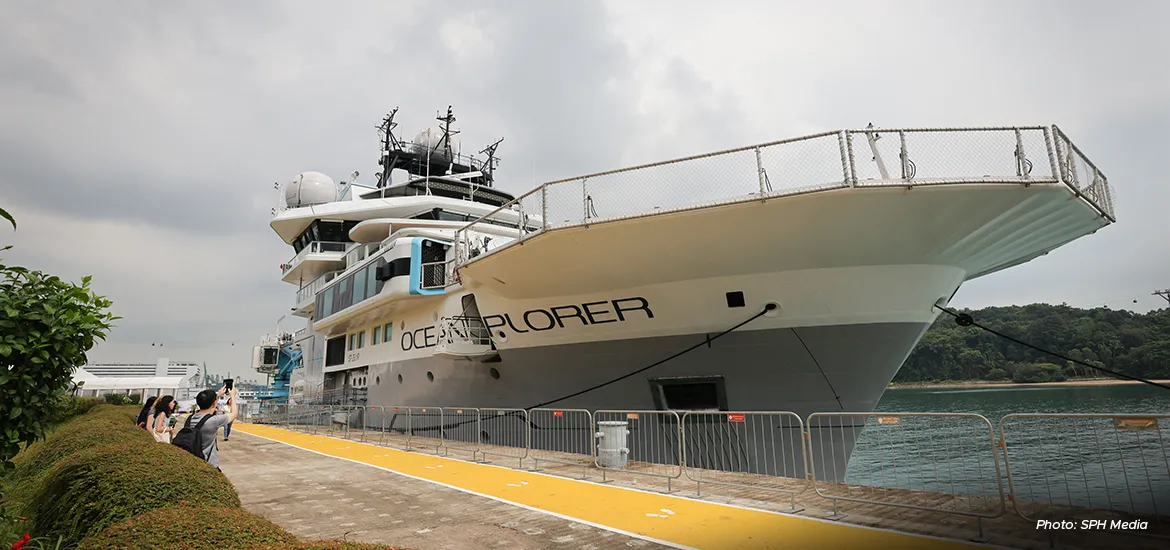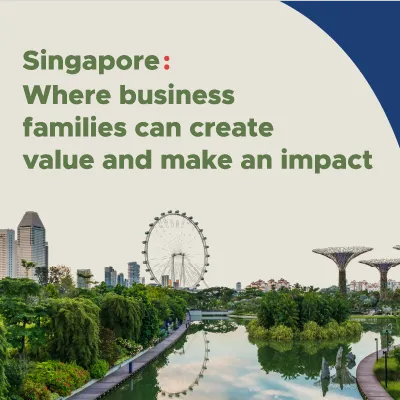PAA has more than 80 members and partners, including international organisations such as Dalio Philanthropies and Bloomberg Philanthropies, as well as local and regional ones such as DBS Foundation and Tanoto Foundation.
Alliance members contribute funding, while partners deliver and implement various impact projects.
The three communities will be introduced during the Philanthropy Asia Summit – PAA’s flagship programme – taking place from April 15 to 18 at Marina Bay Sands.
For a start, more than S$40 million in funding has been committed across the three communities by the PAA and “community pioneers”, which are alliance members that will shape, fund and advance each community’s work together with PAA. The alliance did not provide a breakdown of funding committed per community.
Dalio Philanthropies and the Tsao Pao Chee family business are the community pioneers for Blue Oceans, while Golden Philanthropies (Sinar Mas) and Jollibee Group Foundation are helming Sustainable Land Use. Tanoto Foundation is the pioneer for the Holistic and Inclusive Education community.
PAA chief executive Lim Seok Hui said that with the new initiative, the growing involvement of international philanthropic organisations in Asia will help to build on the good work of regional philanthropic organisations.
“This not only enriches partnerships here with fresh insights, expertise and resources, but also signals the importance and urgency of Asia and Asian solutions to tackle today’s most complex challenges.”
For example, OceanX – the non-profit initiative of the US-headquartered Dalio Philanthropies – currently has its research vessel OceanXplorer docked in Singapore, and has announced plans to conduct expeditions to explore the region’s rich sea life.
“Initiatives like OceanX by Dalio Philanthropies coming to Southeast Asia ensure that crucial issues, such as the conservation and sustainable use of oceans, do not remain on the margins or get overlooked by key stakeholders,” said Ms Lim. “More importantly, philanthropic efforts in this area can kick-start solutions for governments and corporations to get involved down the line.”
She added that the selection of focus areas for communities is driven by urgency and impact, emphasising the interconnected nature of climate and nature crises, as well as their links to health and education of people in the region.
“The effects of climate change, including increased flooding and droughts, can threaten human lives and disrupt education by damaging infrastructure and displacing communities,” she said.
Rising temperatures also create favourable conditions for disease-carrying agents like mosquitoes, leading to the spread of illnesses such as malaria and dengue, she added. “This, in turn, impacts human health and hinders learning, worsening existing inequalities.”
Ms Lim added: “In these domains, philanthropic investment can fuel early-stage innovation and data collection, paving the way for broader public-private funding later on.”
Amid heightened interest in the role of finance – and the need to unlock more sources of it – to tackle these challenges, discussions on the role of philanthropic-public-private partnerships are gaining momentum globally.
In these collaborations, philanthropies are the initial investors, bearing the risk necessary to kick-start a project through pilots and initial data collection.
The public sector contributes essential credibility and structural support, while the private sector brings innovative technology and ensures the sustainability of projects beyond their initial phases, said Ms Lim.









